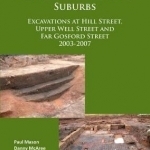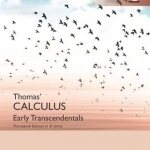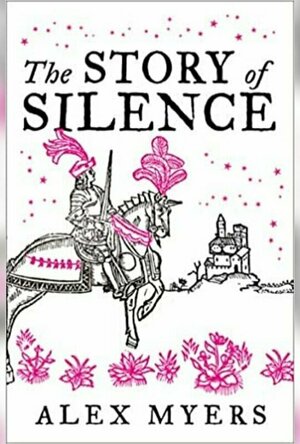Lottie disney bookworm (1056 KP) rated The Story of Silence in Books
Jun 17, 2021
Silence is born a girl, but due to the laws of inheritance is raised a boy, with only 3 people knowing their true gender (one of whom, initially, is not Silence). The Story of Silence follows Silence from birth, showing their struggles between Nature and Nurture in the medieval period.
The writing style of this fantasy novel is remarkable, with an almost lyrical, ballad quality to it. The settings of Cornwall, and later Brittany, are described in such a way that captivates the reader, transporting them to the jousting fields, the towering castles and the courts of Earls and Kings.
The writing is at a slower pace, a literary journey rather than a sprint and for that reason I didn’t quite get the feeling of “I can’t put this down”, particularly in the middle of the novel. However, the twists and turns in Silence’s life were always quick to pull me back in.
As a character, the reader loves Silence from the very beginning. None of the struggles of their life are of their own making. Indeed, there are moments within this story where it would have been much simpler to tell the truth but Silence does not, displaying true knightly qualities of courage and loyalty. If I had one criticism of this book it is that, after his first “courses”, Silence doesn’t seem to find disguising his Nature very difficult., Yes, he binds his chest but he also travels on the road with male companions for years with no further mention of the more natural signs of his true nature.
The cast of characters surrounding Silence are also excellent, we have the troubled Earl Cador who, despite his original plan, it seems cannot love his child as he should; Griselle and the seneschal who do love and care for Silence and then there is Merlin.
Now, I know Silence should be my favourite character but Merlin stole the show in my opinion! There is no stoical wizard in Myers’ world, oh no! Merlin is a naked, disgusting old man who has an awful habit of laughing out loud at the unseen futures of those he passes. I also appreciated how Merlin wasn’t a solution to Silence’s problems (in fact the opposite is true!). Despite the magical undercurrent within this story, Merlin doesn’t fix everything with the flick of a magic wand – conversely he forces Silence to look inside and solve their own riddle, emphasising that you do not need to fit into one category or another, you can be both, you can be what you decide to be.
It should also be noted that, up to this point in the novel, Silence is referred to with the male pronoun, as that is how he sees himself. He is a boy. He is a knight! However, on processing Merlin’s world this pronoun notably changes to they and their. A beautiful detail that resonated how Silence had accepted their true identity.
The characterisation of women in The Story of Silence is something that has been picked up on a lot by my fellow reviewers and yes, the women in this book are often sex-crazed, deceitful, disloyal creatures. This is also an issue that is directly discussed within the author’s note, further proving that this was not an intentional slight on women. Alex Myers is an author, they are telling a story and that story takes place in the 13th century when, unfortunately, women were depicted like this. The main despicable action by a woman is essential to stay true to the poem. Was it frustrating as a female reader? Sometimes. But are there an equal number of ugly characteristics shown in the male characters? Absolutely!
The Story of Silence is a slow-burning tale which steadily unfurls into a captivating narrative which will stay with the reader long after the final page. The original 13th century poem captures the concept of gender so beautifully but Alex Myers takes this even further, handling Silence’s journey with love and compassion. I feel very lucky to have read this.

Coventry's Medieval Suburbs: Excavations at Hill Street, Upper Well Street and Far Gosford Street 2003-2007
Paul Mason, Iain Soden and Danny McAree
Book
Hill Street, Upper Well Street and Far Gosford Street comprise three suburban streets which stood...

High Performance Computing in Science and Engineering '01: Transactions of the High Performance Computing Center Stuttgart (HLRS) 2001
Book
This volume summarizes the state of the art in supercomputing, with special emphasis on the...

High Performance Computing in Science and Engineering: Transactions of the High Performance Computing Center Stuttgart (HLRS) 1998
Book
The book contains reports about the most significant projects from science and industry that are...

High Performance Computing in Science and Engineering: Transactions of the High Performance Computing Center Stuttgart (HLRS) 1999: '99
Willi Jager and E. Krause
Book
Prof. Dr. Egon Krause Aerodynamisches Institut, RWTH Aachen Wiillnerstr. 5 u. 7, D-52062 Aachen...

High Performance Computing in Science and Engineering: Transactions of the High Performance Computing Center Stuttgart (HLRS) 2000: 2000
Willi Jager and E. Krause
Book
An overview of recent developments in high performance computing and simulation, with special...

Thomas' Calculus: Early Transcendentals in SI Units
Maurice D. Weir and Joel R. Hass
Book
Were you looking for the book with access to MyMathLab Global? This product is the book alone and...

The Pillars of the Earth
Tabletop Game
The Pillars of the Earth is based on the bestselling novel by Ken Follett and the 2006 game in the...
Boardgames WorkerPlacementGames BooksintoGames
Kay Nielsen's a Thousand and One Nights
Noel Daniel, Kay Nielsen and Cynthia Burlingham
Book
Night visions A fine art portfolio of Kay Nielsen s sumptuous A Thousand and One Nights In the late...
graveyardgremlin (7194 KP) rated The Wicked and the Just in Books
Feb 15, 2019
My first impression of Cecily is that she's a colossal brat. She's English, thinks she's better than the Welsh (while also fearing they're going to kill her) and her so-called "betters" as well, pouts and connives to get her father to do as she wants, complains...a lot, and doesn't seem to like anyone other than the friends she was forced to leave behind, her father (sometimes), and her dog. But can you blame her if that's how she was raised and didn't know any better? My feelings about her ran the gamut, as did her behavior, it had its ups and downs as does just about anyone. She can be quite funny with her sly remarks or thoughts, but she can also be cruel, kind, loathsome, understanding, and pathetic. Everytime I thought I was about to like her, she'd do something terrible and I thought her lower than dirt, then she'd have her eyes opened to see her surroundings and then she didn't seem so bad. It went like that quite a lot, and by the end, I felt quite bad for her. Gwinny, on the other hand, though while I didn't like her exactly, I understood her right away and sympathized with her position. She is one angry and vengeful person, who through sheer willpower, somehow manages to hold most of it back. The sections told through her eyes are usually shorter than Cecily's, but they get right to the point and have enough information that I didn't feel anything necessary was excluded. The interactions between the two girls are fraught with dislike, loathing, and begrudging understanding, before it all starts over again. Until the last section the characters are the main plot, where after that point the story really explodes into a fast-paced, suspenseful read, which I'll not spoil if you're not familiar with that part of history (I wasn't). You couldn't tear this book from my hands during these last sixty pages if you tried, I was absolutely riveted. The emotions were high, the situations scary, and more than anything it made me grateful. Grateful to have a roof over my head, grateful for the food I can afford to eat, just grateful all around that I don't have to live as the Welsh did, as many others did in the course of history. A word of warning, as with changing circumstances in life there is no concrete ending to the story, which suits the book well. It ends while just beginning and I can't think of a more fitting finish to the story. A good, solid, thought-provoking novel that has a possible crossover appeal to both history-loving teens and adults.
Originally reviewed: September 10
Received: Amazon Vine

